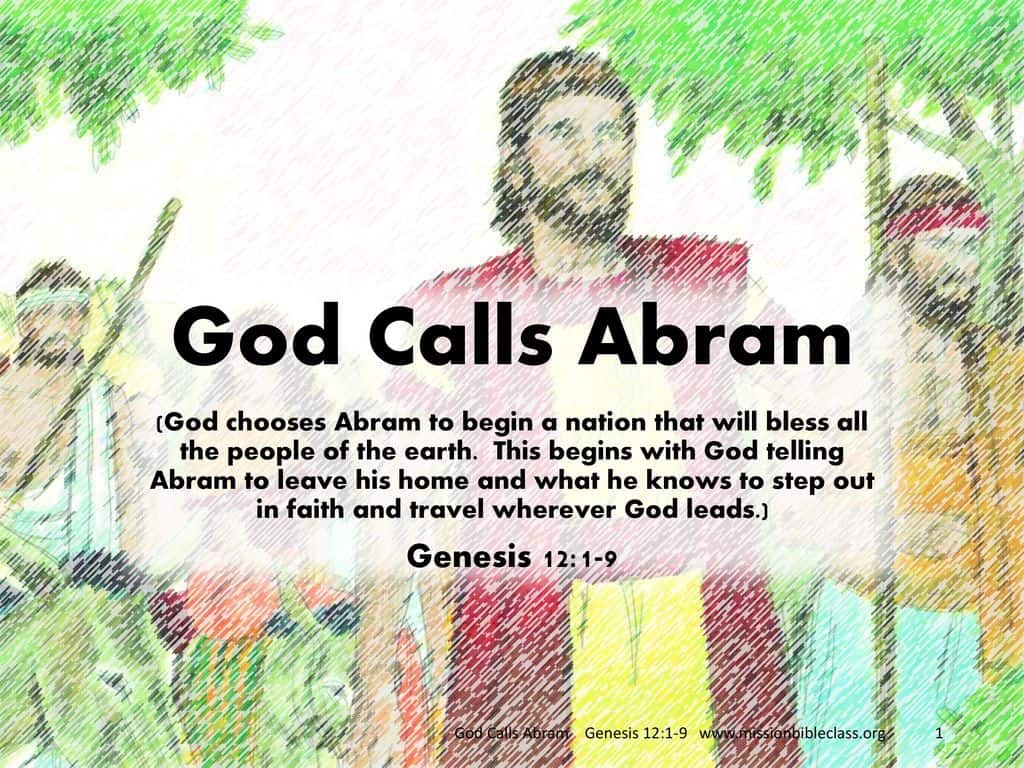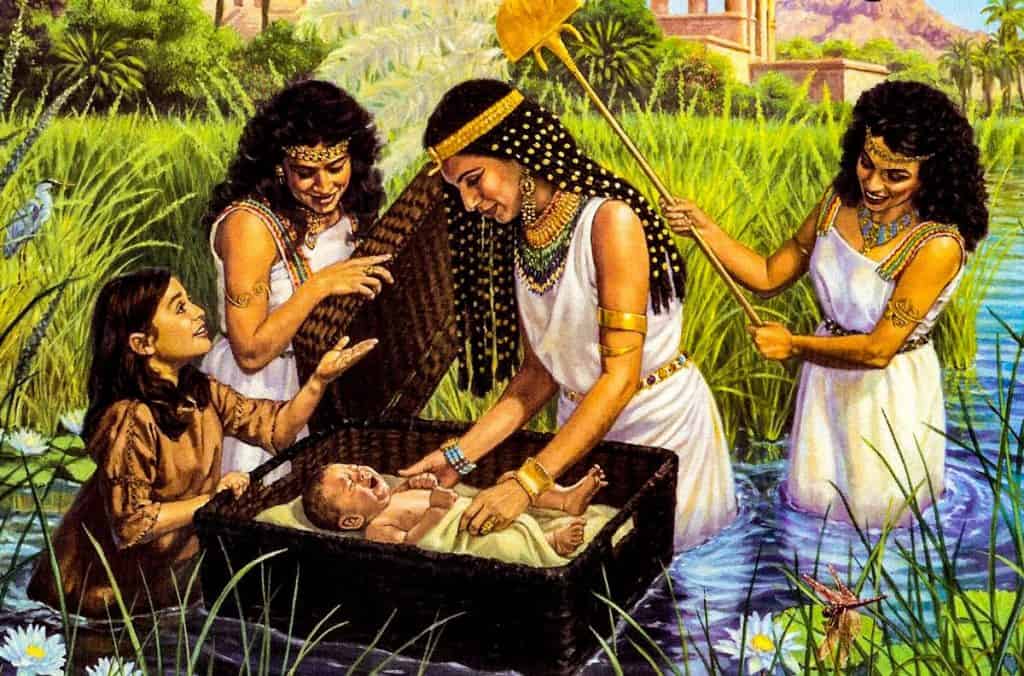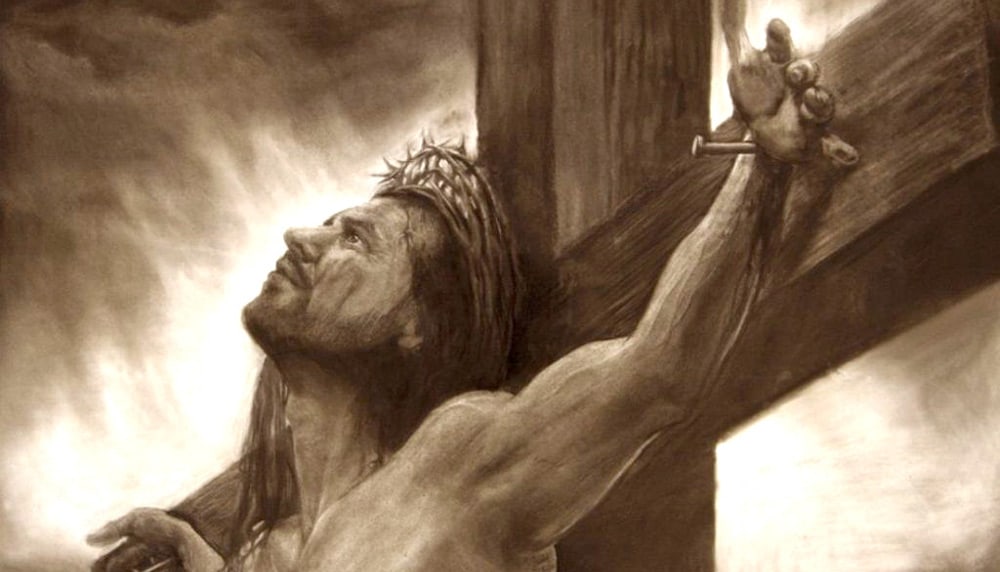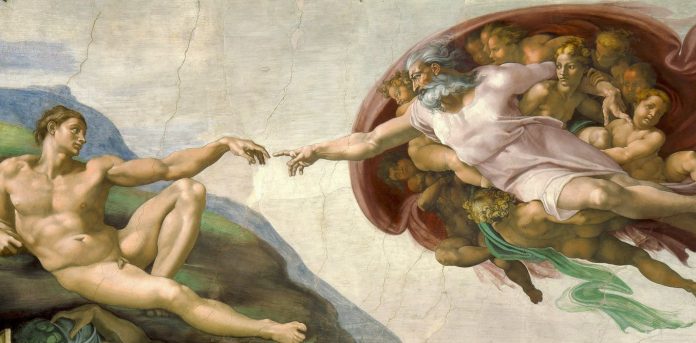The Bible has been identified as the word of God, a book of love, a collection of great literature, a book of moral values and so many other things; all of which are true. However, it is also a guide to help those who are interested develop a personal relationship with God.
Genesis introduces God as the Creator of the world who populated it with all living things including mankind.

God had a personal relationship with Adam and Eve until they rebelled against him and were punished not only by losing the Garden of Eden and their immortality but, even worse, losing their close relationship with God.

God still wants a personal relationship with man. The rest of the Bible, from Genesis to Revelation, shows how God gradually revealed himself to the world and how everyone who is interested can reestablish a close relationship with him.
God’s Relationship with the Patriarchs
Based on the scriptures, once Adam and Eve were driven out of the Garden of Eden, God had few contacts with mankind for hundreds of years.
In Genesis 4, he judged Cain and Abel on their sacrifices and cursed Cain when he murdered his brother then, in Genesis 6, he instructed Noah to build an ark in order to save his family and many of the animals of the world from a devastating flood.

Starting with Genesis 12, God became more involved in the lives of Abraham, known as the father of all who believe, and his successive descendants Isaac, Jacob and Joseph. God promised Abraham that he would be the father of many nations even though Abraham and his wife Sarah were past child-bearing years. Later God interacted with Isaac and then with Jacob, whom he renamed Israel.

God used Israel’s son, Joseph, to interpret dreams and, through a sequence of events, allowed Joseph to become the second most powerful man in Egypt because of his abilities. God’s interaction with the patriarchs established a framework for what was to follow.
God’s Relationship with a Nation
Once Joseph brought his father and brothers to Egypt to escape a famine, they stayed and their descendants became so numerous that the Egyptians became afraid and enslaved them.

Later, Moses was born, raised in Pharaoh’s house then, at the age of 40, forced to flee the country for his life. 40 years later, after living as a shepherd, God instructed Moses to return and lead the Israelites out of slavery.

At this point, God moved from dealing with individuals and made himself known to an entire nation. He revealed his power by sending ten plagues against Egypt and then led them to the land that he had promised to Abraham.
The rest of the Old Testament shows how God blessed his nation when they followed him but also shows how he punished the Israelites, even to the point of having the entire nation taken away in captivity, when they forgot him and followed their own pursuits.

The method God established for the Jews to atone for their sinfulness was the establishment of animal sacrifices. It was the spilling of the animal’s life blood that rolled back the sin of the nation.
- What Is Aromatherapy Vs. What Are Essential Oils?
- What is La Tomatina in Bunol, Spain Like? What to Expect at the Famous Tomato Throwing Festival
God’s Relationship with the World
The New Testament starts by telling that God became flesh and blood, as Jesus the Christ, to experience humanity and to offer his body as the ultimate sacrifice for man’s sins thereby freeing man from having to continually sacrifice animals for atonement.

Christ’s death on the cross and the subsequent establishment of his church paved the way for God to be revealed to the entire world throughout the rest of the New Testament. Now, instead of being enslaved under the restrictive laws and regulations of the Old Testament, Christians only have to follow God’s plan of salvation and love each other by practicing selflessness toward others.
In this way, Christians can regain the personal relationship with God that he had planned from the very beginning.


















